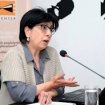The Karabakh Conflict in the Context of Political Processes in Armenia and Azerbaijan - 2018: Page 2 of 11
to find compromises is. In my opinion, there are even fewer opportunities to negotiate compromises, “deals” and so on in Azerbaijan due to the peculiarities of socio-political developments in this country.
Arif Yunusov - I agree with the idea that the involvement of Karabakh, at least at this stage of the negotiation process, is undesirable for the present Azerbaijani authorities. A negative response has already been given. For official Baku and, first of all, for Ilham Aliyev backsliding is a sign of weakness. He will not do it. On the other hand, I agree that Pashinyan's speech was more intended for the internal audience and, in many respects, it is a continuation of his struggle against former authorities. And as it happens quite often in such cases, things said during an internal struggle can be significantly transformed in the future.
It seems we may expect more from the point of potential trust-building measures on both sides in the future. However, I remain pessimistic about this and do not really believe in such prospects in the near future. For the official Baku everything has been decided long ago and it will take something similar to what happened in Armenia for any serious change. Meanwhile, it is not worth waiting for a serious breakthrough in “national diplomacy” and trust-building while Aliyev is at rule. Efforts on the part of Azerbaijan will continue in using propaganda more intensively, looking for Armenians in the countries of CIS and the Diaspora in order to invite them to Baku and present them as peace supporters who have come to share the position of Azerbaijan.
Laura Baghdasaryan - True, the statement about the involvement of Karabakh in the negotiations along with Armenia absolutely contradicts the formula Azerbaijan has been following all these years. Namely, Armenia and Azerbaijan conflict because of Karabakh. According to the Armenian party, Armenia is a guarantor of Karabakh while the conflict is being fought between Azerbaijan and Karabakh. It seems that until now the non-participation of Karabakh in negotiations suited international mediators well, at least ensuring no further aggravation of the already difficult situation, having some dialogue and organizing some meetings. My remark is to your idea that Pashinyan's statement is more likely to be a continuation of revolutionary rhetoric directed, first of all, against the former authorities. Although, this statement, as everyone knows, caused serious tensions among the representatives of all former leaders of Armenia.Apparently, the discussion about what is more correct - the state of things as it was until now, or how it should be - also took place among Armenians. However, by and large, no one has yet opposed the idea of Karabakh being a party to the conflict de jure, too.
Manvel Sargsyan - I agree with Laura's statement that the change of power in Armenia created an intrigue in the Karabakh issue. Take, for example, the fact that for the first time ever Armenia has a new leader whose authority is not connected in any way with the Karabakh issue. All the three former presidents of Armenia defined their
Pages
- « первая
- ‹ предыдущая
- 1
- 2
- 3
- 4
- 5
- 6
- 7
- 8
- 9
- 10
- следующая ›
- последняя »







 +37410 563363
+37410 563363
 ул. Бузанда 1/3, 8-й этаж, Ереван, Армения
ул. Бузанда 1/3, 8-й этаж, Ереван, Армения